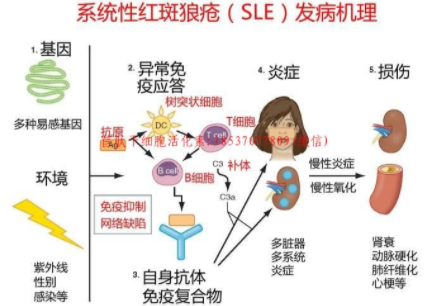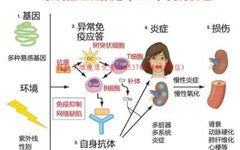 Internal injury leading to disease refers to the activities of emotions or daily life that deviate from normalcy, exceeding the body’s self-regulatory capacity, directly harming the organs, qi, blood, yin, and yang, resulting in illness. The factors of internal injury leading to disease are contrasted with external pathogenic factors, as the disease arises from within, mainly including the seven emotions, improper diet, and imbalance of work and rest.
Internal injury leading to disease refers to the activities of emotions or daily life that deviate from normalcy, exceeding the body’s self-regulatory capacity, directly harming the organs, qi, blood, yin, and yang, resulting in illness. The factors of internal injury leading to disease are contrasted with external pathogenic factors, as the disease arises from within, mainly including the seven emotions, improper diet, and imbalance of work and rest.

Seven Emotions The seven emotions refer to the seven types of emotional activities: joy, anger, worry, thought, sadness, fear, and shock, which are the seven different emotional responses of a person to external events and phenomena (mental state). Generally, these emotional activities are normal and do not cause disease. However, when a person experiences sudden, intense, or prolonged emotional stimuli that exceed the physiological regulatory range and tolerance of the body, leading to qi disturbance and imbalance of organs, qi, blood, yin, and yang, it can become a cause of disease. Abnormal seven emotions can directly affect the internal organs, hence it is also referred to as “internal injury from the seven emotions.”The characteristics of disease caused by the seven emotions:1Directly Harm the Internal Organs Due to the close relationship between the five organs and emotional activities, internal injury from the seven emotions differs from the six excesses that invade the body through the mouth, nose, or skin; instead, it directly affects the corresponding organs, leading to qi and blood disturbances and resulting in disease.Since the heart governs the spirit and is the main organ of the five organs and six bowels, all internal injuries from the seven emotions can damage the heart spirit, subsequently affecting other organs, thus the heart plays a leading role in internal injuries from the seven emotions.Different emotional stimuli cause different injuries to each organ. For example, the “Su Wen: On the Correspondence of Yin and Yang” states that “joy injures the heart,” “anger injures the liver,” “sadness injures the lungs,” “thought injures the spleen,” and “fear injures the kidneys.”Clinically, internal injuries from the seven emotions are often seen as dysfunction of the heart, liver, and spleen. For instance, excessive joy, shock, worry, and mental labor can harm the heart, leading to restlessness, symptoms such as palpitations, insomnia, forgetfulness, and even mental disorders. Anger harms the liver, causing liver qi stagnation, with symptoms such as rib-side distension and pain, sighing, or a sensation of obstruction in the throat; in women, it can lead to menstrual irregularities, dysmenorrhea, amenorrhea, and often causes masses or accumulations. Worry and sadness harm the spleen, leading to spleen dysfunction, with symptoms such as poor appetite, abdominal distension, and loose stools. If worry and mental labor simultaneously damage the heart and spleen, it can lead to deficiency of both heart and spleen, presenting with the aforementioned symptoms of restlessness and spleen dysfunction.2Affecting the Qi Mechanism of the Organs Internal injuries from the seven emotions can also affect the qi mechanism of the organs, causing abnormal qi ascent and descent, and disordered qi and blood circulation, leading to disease.Different emotional injuries have different impacts on the qi mechanism, specifically manifested as follows.(1)Anger causes qi to rise: Intense anger can affect the liver’s ability to disperse, leading to liver qi rebellion, with blood following the rebellious qi upwards, resulting in symptoms such as headache, facial redness, and vomiting blood, and in severe cases, fainting or collapse.(2)Joy causes qi to relax: This includes two aspects; one is that joy can ease mental tension, making the mood pleasant, and promoting the smooth flow of defensive and nutritive qi; the other is that excessive joy can scatter the heart spirit, leading to distraction and symptoms such as lack of concentration and even mental confusion.(3)Sadness (worry) causes qi to decline: Excessive sadness and worry can suppress lung qi, leading to a depressed will, which in turn depletes lung qi, resulting in symptoms such as shortness of breath, low voice, fatigue, and lack of energy.(4)Fear causes qi to descend: Excessive fear can cause kidney qi to be unstable, leading to qi leakage downwards, with blood also descending, resulting in symptoms such as pale complexion, dizziness, and in severe cases, fainting; unstable kidney qi can often lead to frequent urination or incontinence, nocturnal emissions, and in pregnant women, miscarriage; fear can damage kidney essence, leading to symptoms such as bone soreness and weakness.(5)Shock causes qi to be chaotic: Sudden shock can disrupt heart qi, leading to a state where the heart has no support, the spirit has no resting place, and the mind cannot settle, resulting in symptoms such as palpitations and panic.(6)Worry causes qi stagnation: Excessive worry and mental labor can damage the spirit and spleen, leading to spleen qi stagnation, with symptoms such as reduced appetite, abdominal distension, and loose stools. Excessive worry and mental labor not only cause stagnation of spleen and stomach qi but can also secretly deplete heart blood, resulting in the “deficiency of both heart and spleen” syndrome.3Affecting the Course of Disease During the evolution of a disease, if there are abnormal and intense emotional fluctuations, it often exacerbates the condition, or leads to rapid deterioration, even accelerating death.For example, a person with pre-existing liver yang hyperactivity, when encountering anger, can cause a violent rise in liver yang, leading to extreme wind, resulting in dizziness, fainting, or even loss of consciousness and hemiplegia.Patients with chest obstruction, due to sudden joy or anger, can experience palpitations, severe chest pain, profuse sweating, cyanosis, and cold limbs, indicating a critical condition of heart yang collapse.Improper Diet Diet is essential for human survival and maintaining life activities. Good dietary habits require regularity, moderation, and hygiene, emphasizing a reasonable diet. Each person’s dietary needs vary based on age, gender, constitution, occupation, health status, and food types. Improper diet refers to irregular eating patterns, abnormal hunger and satiety, unclean food, or food preferences that harm the spleen and stomach’s digestive functions, leading to abnormal ascent and descent, resulting in damp accumulation, phlegm formation, heat generation, or the development of other diseases. This mainly includes irregular eating, unclean food, and food preferences.1Irregular Eating Irregular eating refers to a lack of fixed dietary patterns, leading to disease, mainly including excessive hunger and excessive fullness.(1) Excessive Hunger: Refers to insufficient food intake or irregular eating, leading to a lack of qi and blood production, which over time results in insufficient replenishment of qi and blood, with symptoms such as pale complexion, shortness of breath, palpitations, fatigue, and weight loss. It can also lead to a decline in the body’s resistance due to deficiency of righteous qi, making one susceptible to other diseases.(2)Excessive Fullness: Refers to long-term overeating or binge eating, which can overload the spleen and stomach, exceeding their capacity for reception, digestion, and transformation, leading to food stagnation, harming the spleen and stomach, initially presenting with symptoms such as belching, acid regurgitation, aversion to food, abdominal distension, or vomiting and diarrhea; in severe cases, it can lead to sudden qi counterflow, collapse, inability to speak, and inability to move, referred to as “food stagnation” or “food counterflow”; over time, due to food stagnation, it can transform into heat, damp accumulation, phlegm formation, and the development of other conditions. For infants and young children, due to immature spleen and stomach functions and weak self-control, they are prone to overindulgence, leading to food accumulation, presenting with symptoms such as yellowish complexion, thinness, abdominal distension, five hearts heat, and easy crying or fright; excessive consumption of rich and fatty foods can generate internal heat, leading to abscesses and toxic sores. In the early stages of disease recovery, if the spleen and stomach are still weak, overeating or consuming indigestible foods, or eating excessively rich foods after a febrile illness, can often lead to disease recurrence, referred to as “food relapse.”(3)Irregular Timing of Meals: This can lead to the aforementioned abnormal hunger and fullness symptoms; it can also affect the normal order of qi ascent and descent in the spleen and stomach, as well as the alternation of the six bowels’ transmission and transformation, leading to qi stagnation, or further developing into qi stagnation, blood stasis, and damp accumulation leading to phlegm formation. For example, stomach pain due to spleen and stomach qi stagnation; prolonged liver overacting on spleen deficiency leading to belching and acid reflux; prolonged illness leading to blood stasis accumulation; symptoms include intensified pain, weight loss, skin issues, vomiting blood, and blood in stools, and accumulation.2Unclean Food Unclean food refers to food that is unclean, unsanitary, spoiled, toxic, or contaminated, leading to diseases such as dysentery, cholera, etc., with symptoms such as abdominal pain and vomiting; it can also cause various intestinal parasitic diseases, presenting with intermittent abdominal pain, pica, yellowish complexion, and even ascariasis; if spoiled or toxic food is ingested, it can lead to food poisoning, resulting in severe abdominal pain, vomiting, and diarrhea, and in severe cases, can lead to coma or death.3Food Preferences Food preferences refer to a strong liking for certain foods, which can lead to nutritional imbalances; on one hand, some nutrients may be insufficiently absorbed, while on the other hand, excessive absorption of certain substances can lead to yin-yang imbalance and disease over time. This mainly includes preferences for cold or hot foods, preferences for certain flavors, and excessive alcohol consumption.(1)Cold and Hot Preferences: The cold and hot nature of food generally refers to the inherent properties of food as cold or hot, and also includes the temperature of the food. Cold and hot foods can cause imbalances of yin and yang within the body; for example, a preference for cold foods, excessive consumption of raw and cold items, can easily damage the yang qi of the spleen and stomach, leading to internal cold and dampness, with symptoms such as cold abdominal pain, preference for warmth, and diarrhea; a preference for hot foods, excessive consumption of spicy, dry, and warming items, can easily lead to heat accumulation in the stomach and intestines, resulting in symptoms such as thirst, bad breath, abdominal distension and pain, constipation, or hemorrhoids.(2)Flavor Preferences: The five flavors refer to sour, bitter, sweet, spicy, and salty. Each flavor corresponds to a specific organ; if one has a long-term preference for a certain flavor, it can lead to hyperfunction of the corresponding organ, which over time can damage other organs and lead to disease. For example, excessive consumption of salty foods can lead to kidney excess affecting the heart, resulting in symptoms such as chest tightness, shortness of breath, pale complexion, and blood stasis.(3)Type Preferences: A healthy diet should primarily consist of grains, with meat as a secondary source, vegetables as a supplement, and fruits as an aid. If one exclusively eats certain types of food or avoids certain types, or lacks certain foods in their diet, it can lead to the development of certain diseases over time, such as goiter (iodine deficiency), rickets (calcium and phosphorus metabolism disorders), and night blindness (vitamin A deficiency). Additionally, excessive preference for tobacco and alcohol can damage the spleen and stomach, generate dampness and heat, leading to symptoms such as abdominal distension, reduced appetite, bitter and greasy mouth, and thick greasy tongue coating.Imbalance of Work and Rest Normal labor and necessary physical exercise help promote the smooth flow of qi and blood, enhancing physical fitness; appropriate rest can eliminate fatigue and restore physical and mental strength, all of which are beneficial to normal physiological activities. However, prolonged excessive labor or excessive leisure can lead to dysfunction of the organs’ qi and blood, muscles, and bones, resulting in disease.1Excessive Labor Refers to excessive labor leading to illness.It includes excessive physical labor, excessive mental labor, and excessive sexual activity.(1)Excessive Physical Labor: Long-term excessive physical labor, heavy physical burdens, or intense exercise without adequate rest can deplete the body’s vital energy, leading to illness. The “Su Wen: On Pain” states, “Labor consumes qi,” and “Labor leads to panting and sweating, affecting both internal and external, thus qi is consumed.” Clinically, symptoms such as generalized soreness, shortness of breath, reluctance to speak, fatigue, and over time, often lead to weight loss, shortness of breath, spontaneous sweating, loose stools, and a sluggish stomach. Additionally, excessive physical labor can also damage related tissues and organs, leading to soreness and weakness in the waist and knees.(2)Excessive Mental Labor: Long-term excessive worry can secretly deplete heart blood and damage spleen qi, leading to symptoms such as palpitations, irritability, forgetfulness, insomnia, and vivid dreams; along with symptoms of poor appetite, abdominal distension, and loose stools due to spleen dysfunction, over time, blood and qi can deplete, leading to muscle wasting and fatigue.(3)Excessive Sexual Activity: Unrestrained sexual activity, such as frequent sexual intercourse, early marriage, or masturbation, can excessively deplete kidney essence. The kidneys store essence and govern storage; excessive depletion of kidney essence can lead to symptoms such as soreness and weakness in the waist and knees, dizziness, tinnitus, mental fatigue, reduced sexual function, nocturnal emissions, premature ejaculation, impotence, menstrual irregularities, or infertility.2Excessive Leisure Excessive leisure refers to excessive idleness, including both physical and mental idleness.Excessive leisure can lead to disease, characterized mainly by three aspects: first, idleness leads to stagnant qi.If one exercises too little for a long time, the body’s qi mechanism becomes obstructed, leading to sluggish function of the spleen and stomach, resulting in symptoms such as reduced appetite, chest tightness, abdominal distension, weakness in limbs, or obesity.Second, yang qi becomes weak, and righteous qi is deficient.Excessive leisure or prolonged bed rest can lead to a decline in organ function, resulting in physical weakness and insufficient righteous qi, leading to decreased resistance.Excessive leisure often presents with symptoms such as palpitations, shortness of breath, and sweating, or an inability to resist external pathogens, making one susceptible to disease.Third, prolonged mental idleness, combined with weak yang qi, can lead to mental fatigue, often presenting with symptoms such as mental sluggishness, forgetfulness, and slow reactions.“Prolonged lying harms qi, prolonged sitting harms flesh” (“Su Wen: On the Five Qi”) refers to the diseases caused by excessive leisure.
Electronic Textbooks
| Internal Medicine | Surgery | Pediatrics |
| Diagnostics | Obstetrics and Gynecology (8th Edition) | Infectious Diseases |
| Types of Infectious Diseases | Symptoms and Signs | Practical Skills |
| Systemic Anatomy | Local Anatomy | Neurology |
| Emergency Management | Emergency and Disaster Medicine | Dermatology and Venereology |
Physiology (9th Edition) |
Obstetrics and Gynecology (9th Edition) | |
Basic Nursing Skills for Caregivers |
||
Guidelines for Geriatric Nursing Practice |
 Traditional Chinese Medicine – Renwei 8th Edition
Traditional Chinese Medicine – Renwei 8th Edition

